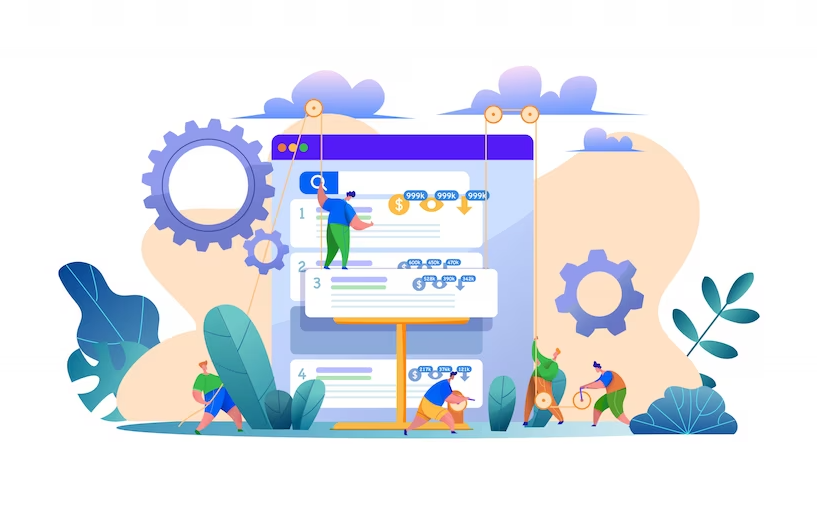In today’s digital age, a strong online presence is crucial for businesses and individuals alike. A well-designed and functional website not only serves as a digital storefront but also acts as a hub for information dissemination, customer interaction, and brand representation. However, many people underestimate the significance of ongoing website maintenance. A well-structured website maintenance plan is not just an option; it’s a necessity to ensure that your online platform remains effective, secure, and up-to-date.
What Is a Website Maintenance Plan
A comprehensive web maintenance plan serves as a detailed roadmap outlining actionable measures to uphold and enhance a website’s performance. This encompasses activities such as vulnerability assessment, data backups, software upgrades, speed monitoring, and documentation of alterations.
The formulation of a web maintenance plan typically necessitates collaboration among developers, marketing personnel, and security experts. Given that website maintenance is an ongoing endeavor, procuring a website maintenance service proves advantageous for small businesses lacking a dedicated IT team.
Commonly, companies offer maintenance services in the form of monthly or yearly packages, encompassing aspects like security concerns, updates, backups, and even design and SEO enhancements. The computation of website maintenance expenses hinges on factors like intricacy, scale, and functionality.
For those undertaking maintenance themselves, devising a plan also facilitates the creation of a budget and more accurate cost estimation for the maintenance process.
The Key Components of a Website Maintenance Plan
Creating an all-encompassing website maintenance plan involves addressing a range of critical components to guarantee that your online platform functions optimally and meets user expectations. Here are the key elements that should be included:
1. Content Management and Updates
The content on your website is the primary driver of engagement and relevance. Regularly updating your content ensures that visitors find fresh, valuable information that keeps them coming back. This could involve adding blog posts, news updates, case studies, testimonials, or any other content that aligns with your goals and target audience.
2. Fortifying Security Measures
Cybersecurity threats continue to evolve, making robust security measures essential. Your maintenance plan should encompass regular security audits, software updates, and vulnerability assessments. Utilizing HTTPS, employing firewalls, and implementing multi-factor authentication are pivotal steps in safeguarding your website and user data.
3. Bug Fixes and Technical Enhancements
Websites consist of intricate codes and technologies that can sometimes harbor bugs or compatibility issues. Regularly checking for broken links, testing forms, and ensuring cross-device compatibility guarantees a seamless user experience. Moreover, keeping your software, plugins, and themes up-to-date is vital to avoid security vulnerabilities and compatibility hiccups.
4. Performance Optimization
A slow-loading website can deter even the most patient visitors. As part of your maintenance plan, focus on optimizing performance by compressing images, minifying code, and utilizing caching mechanisms. This not only improves user experience but also contributes to better search engine rankings.
5. Robust Backup and Recovery Strategies
Despite all precautions, data loss can occur. Regularly backing up your website ensures that you have the ability to restore it to a previous state in case of emergencies. This minimizes downtime and data loss, allowing you to swiftly get back on track.
6. SEO Monitoring and Enhancements
Search engine algorithms are ever-evolving, directly impacting your website’s visibility in search results. A comprehensive maintenance plan involves monitoring your website’s SEO performance, adjusting meta tags, optimizing keywords, and adhering to the latest SEO best practices.
7. User Experience Refinement
Listening to user feedback and continuously enhancing user experience is pivotal. Analyzing user behavior through tools like Google Analytics and making informed adjustments to navigation, layout, and design elements ensure that your website remains user-friendly and effective.
Benefits of a Website Maintenance Plan
Implementing a well-structured website maintenance plan offers numerous advantages:
- Enhanced Security: Regular updates and security checks fortify your website’s defenses against cyber threats, protecting your data and the privacy of your users.
- Elevated User Experience: By promptly addressing bugs and optimizing performance, you create a seamless browsing experience that encourages prolonged engagement.
- Optimized SEO Performance: Fresh content, updated keywords, and adherence to SEO guidelines bolster your website’s search engine rankings, making it more discoverable.
- Cost-Efficiency: Preventive maintenance often costs less than addressing major issues caused by neglect or security breaches.
- Preserved Reputation: A well-maintained website reflects positively on your brand’s professionalism and dedication to quality.
- Increased Conversions: A user-friendly, secure, and regularly updated website can lead to higher conversion rates, translating to more sales, sign-ups, or other desired actions.
Best Practices for Managing Website Maintenance Services
Outlined below are the most recommended approaches for efficiently overseeing the delivery of seamless web maintenance services within your agency.
Emphasize the Scalability of Services
Embrace substantial projects with confidence, viewing each contract as an opportunity for growth. However, maintaining service quality is paramount even amidst these challenges. Strive for a balance between dedicating adequate resources to each project and avoiding overallocation. Outsourcing might prove beneficial in certain cases, ensuring a manageable workload.
Ensure Sales Security
As your client base expands, contemplate augmenting your support team. Collaboration with freelancers or other agencies can also alleviate the workload. Employ automated scaling mechanisms to preserve service quality while undertaking projects that might have been unmanageable individually. Cultivate this service as a pivotal revenue stream rather than a mere supplement to your agency’s offerings.
Automate Payment Processes
Avoid the pitfall of continually nudging clients for payments, which may lead to hesitation. Instead, institute a recurring payment plan, allowing for automatic monthly charges. Additionally, provide clients opportunities to upgrade their support packages as a satisfied clientele is more likely to invest further.
Routine Reporting
Consistently furnish clients with regular reports and updates—an oversight many agency owners commit. Clients engaging in website maintenance services anticipate timely updates. It is imperative to generate monthly or weekly reports, disseminating them at regular intervals, irrespective of whether the client reviews them. Fulfill your responsibility in this aspect.
Evaluate Service Standards
Conduct quarterly collaborative sessions with your customer support team to brainstorm enhancements. Identify avenues for operational streamlining without compromising efficacy. Regularly assess service benchmarks. Solicit client feedback through questionnaires to pinpoint areas requiring refinement. This straightforward approach aids in recognizing improvement opportunities.
Conclusion
A website maintenance plan isn’t a mere checklist; it’s a strategic approach to sustaining the vitality and effectiveness of your online presence. Overlooking website maintenance can expose your platform to security vulnerabilities, outdated content, and subpar user experiences. By consistently updating content, bolstering security measures, resolving bugs, optimizing performance, and prioritizing user experience, you establish a strong foundation for your online identity. In a rapidly evolving digital landscape, a well-maintained website isn’t just an asset – it’s a necessity for continued growth and success. So, invest in a comprehensive website maintenance plan today to reap the benefits tomorrow and beyond.
At ONext Digital, we provide building and maintaining websites with more than 10 years of experience. Contact us if you’re looking for an agency to help you maintain your websites. Our experts are always ready to support 24/7 and bring high-quality to clients
Read more













